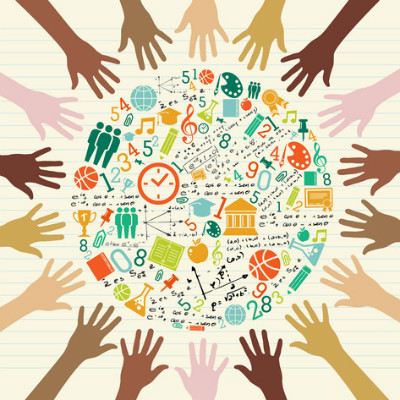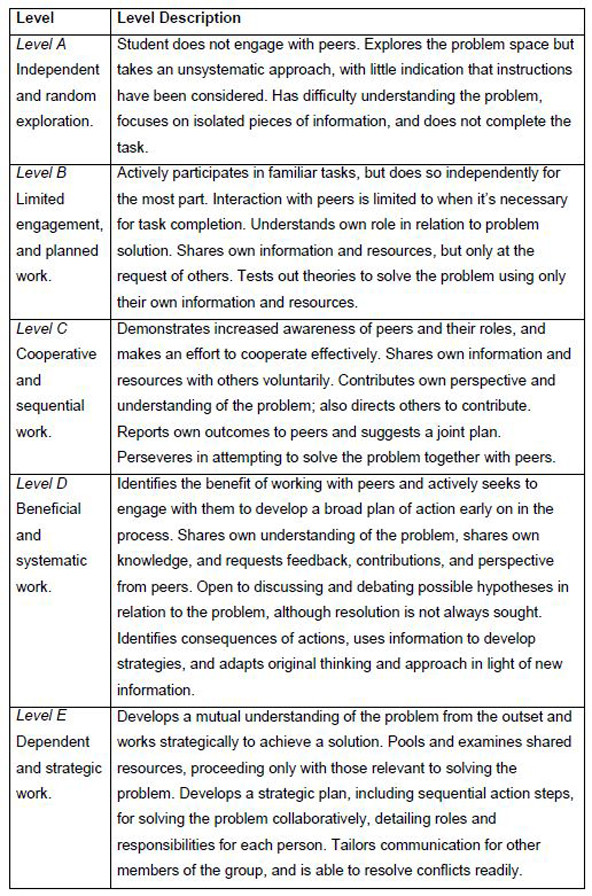As our world grows more interconnected, conversations about education are shifting to focus on identifying and cultivating the complex “21st-century” skills children will need to succeed amid global competition and uncertainty. It’s one thing to know what those skills are (for example collaborative problem solving, or critical thinking), but it’s quite another to know where, when, and how to help individual students develop them. And unfortunately, today’s education systems aren’t yet engaging in the kinds of assessments and analyses that will help them do that. Instead, they tend to emphasize summative assessments, which are valuable but do not typically contribute to individual learning.
What’s needed is an approach that strives to understand the nature of the skills that students need (including how those skills develop over time) and to inform teachers how to adapt their instructional support to help students progress toward mastery. In other words, the focus should be on learning progressions—the journeys that students take as they move toward mastering skills in specific areas or disciplines—rather than on outcomes in the form of scores on standardized tests.

How learning progressions work
Learning progressions describe typical sequences of learning in specific areas or disciplines. A familiar parallel would be a curriculum that is designed to help a student learn about a particular subject over the course of several grades. In a similar fashion, teachers can use learning progressions as road maps to guide their instruction. To be clear, though, learning progressions do not describe a single pathway to achieving a skill level. Instead, they provide a picture of the typical path students follow in learning particular skills.
What’s more, while learning standards describe what a student should have learned by a specific stage in their education, learning progressions focus on the building blocks that contribute to mastering a particular skill. This developmental approach maps the progress of a student through stages of increasing knowledge, skills, and understanding.
How can we develop learning progressions for 21st-century skills?
To develop any sort of learning progression, one starts by outlining expected behaviors related to the skill in question, from a novice level to an expert level. The different performances anticipated at different stages of progress should recognize differences in quality and should form a sequence of behaviors.
To illustrate how learning progressions would support the development of 21st century skills, we include a progression for “collaborative problem solving,” depicted in the chart below. We know “collaboration” requires that individual members of a group contribute their own knowledge, experience, and resources to help the group as a whole achieve a goal. We also know that “problem-solving” requires the ability to navigate situations that can be unfamiliar in the interests of deriving solutions to issues that are often complex. The progression below thus describes collaborative problem solving, as we understand it, from the level of novices (A) to experts (E).
As the chart shows, novices would work independently; they would be unaware of the benefit of engaging with peers, and as a result, would not solve the problems presented. As students increase in proficiency, however, they would engage more with others and gradually realize the benefit of collaboration. Expert collaborative problem solvers would depend upon their peers; they would develop a mutual understanding of the problem and work strategically to solve it, resolving conflicts along the way.
 Chart adapted from Griffin, P., Care, E., & Harding, S. (2015). Task characteristics and calibration. In P. Griffin and E. Care (Eds.). Assessment and Teaching of 21st Century Skills: Methods and Approach. Dordrecht: Springer.
Chart adapted from Griffin, P., Care, E., & Harding, S. (2015). Task characteristics and calibration. In P. Griffin and E. Care (Eds.). Assessment and Teaching of 21st Century Skills: Methods and Approach. Dordrecht: Springer.
Where we are, and where we need to go
For 21st-century skills or for any skills we know less about—such as collaborative problem solving—learning progressions necessarily begin as hypotheses. Over time, through data collection and analysis, we should be able to transform those hypotheses into empirical progressions. The good news is that learning progressions for literacy, science, and numeracy have been hypothesized, researched, and discussed for decades. Tried-and-true progressions exist for those subjects, and we know they work. We can thus use this established approach to benefit our understanding of more complex skills—not just of the skills themselves, but also of how students demonstrate them at various levels.
As countries around the world broaden their goals for education to include equipping students with a broader range of skills, the challenge of translating their aspirations into the classroom looms large. The actions we take to support empirical learning progressions for 21st-century skills—as educators, funders, education-focused nonprofits, and the adults of today—have urgent and far-reaching implications for the adults of tomorrow.
Support SSIR’s coverage of cross-sector solutions to global challenges.
Help us further the reach of innovative ideas. Donate today.
Read more stories by Helyn Kim & Claire Scoular.

